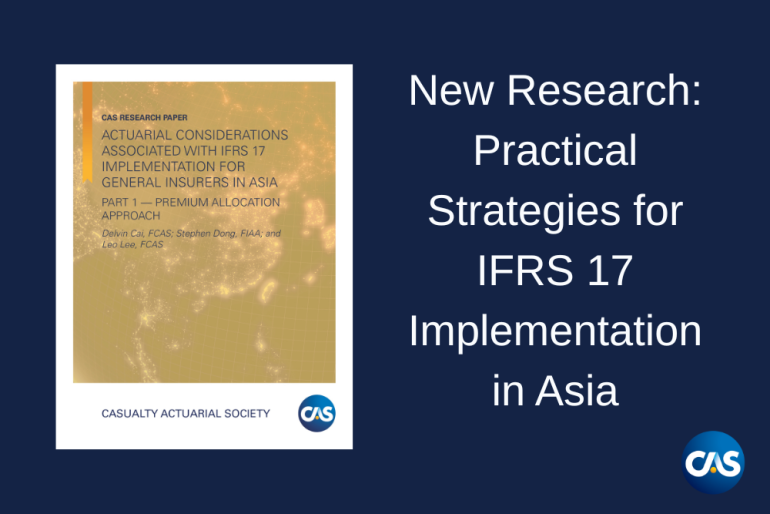New CAS Research Paper Unveils Practical Strategies for IFRS 17 Implementation in Asia

The Casualty Actuarial Society (CAS) is proud to announce the release of a significant new research paper: Actuarial Considerations Associated with IFRS 17 Implementation for General Insurers in Asia – Part 1: Premium Allocation Approach.
Authored by Delvin Cai, FCAS, Stephen Dong, FIAA, and Leo Lee, FCAS, this paper addresses one of the most impactful transitions in the insurance industry—the shift to IFRS 17. This accounting standard aims to improve the transparency and consistency of insurance reporting across jurisdictions while presenting unique challenges and opportunities for property and casualty (P&C) insurers, particularly in the diverse Asian market.
This first part of a two-part series focuses on the simplified Premium Allocation Approach (PAA), exploring its adoption, practical implications, and emerging practices. Insights are drawn from our authors’ comprehensive research and survey of over 60 P&C insurers across Asia, including territories already live with IFRS 17 such as Hong Kong, Singapore, and Malaysia.
The findings aim to support actuaries, financial professionals, and executives navigating this transformative period. With detailed industry analysis and practical insights, the paper serves as a guide for those implementing or preparing for IFRS 17 compliance.
“For actuaries, this research provides insights into market practices and rationale for critical decisions under IFRS 17. Actuaries involved in the reporting and valuation side may find the market trends useful to compare against their own interpretations. Non-actuaries can also benefit from better understanding the operational and financial implications of this new standard, fostering improved collaboration and decision-making within their organizations,” co-author Cai said.
Visit the CAS website to download the full report.
The second part of this series will delve into the General Measurement Model (GMM) and changes in performance indicators under IFRS 17.
